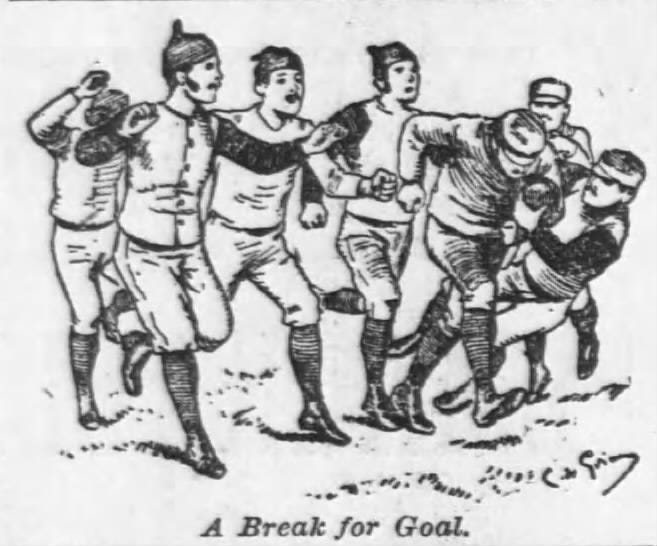Today's Tidbit... Charles Gill, 1889 All America
Football was still a relatively new game in 1889, new enough that major city newspapers still published articles explaining the fundamentals of the game to their audiences. A few club teams had formed for the post-college or no-college boys, but the colleges dominated the game, and the IFA, representing four or five schools, made football's rules, and everyone else followed them.
A November 1889 article in the Pittsburgh Dispatch, "Some Noted Kickers," is typical of such reports. In addition to providing background on football. it describes a recent decision by the IFA to exclude from games players who are no longer full-time undergraduates at their university and anyone who paid for their athletic skills or knowledge. (Those who accepted money for coaching lost their amateur status.)

Besides providing a brief history of the game, the article noted that football required brains and brawn, a combination seldom found in sufficient quantities in one individual. However, Yale's Charles Gill came closest to being the perfect football player.
Gill, who was expected to lead Yale to the championship over Princeton and Harvard, received high praise from the writer:
Gill, who is captain of the Yale eleven, is perhaps the most perfect all-around player. He is a power in the rush line, is a superb and wonderfully sure tackler, and his interfering is dreaded by all who come in contact with him. He comes nearer to being an ideal player than any man in the country. He is a fine general and a strict disciplinarian - a very necessary thing for the leader of a football eleven. The captain must be the sole master of the field, and his commands must never be questioned for an instant. ...if the blue waves in victory this year it will be in great part owing to him and his systematic training of his men.

As it turned out, Yale towered over the football world until season's end as the 1889 team outscored opponents 664 to 21, leading into the final game with Princeton. Unfortunately for Yale, Princeton took them down 10-0 in the IFA championship game.
Nevertheless, when Casper Whitney named the first All-American team at the end of the 1889 season, Charles Gill headed the team and was joined by his teammates Pudge Heffelfinger and Amos Alonzo Stagg.
Football Archaeology is reader-supported. Click here to buy one of my books or otherwise support the site.


